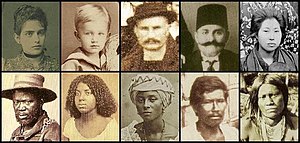Setting up a Business in Brazil
An introduction to, and explanation of the necessary steps to setting a business in Brazil. Includes information on the different types of business structure and the legal process involved in setting up a Brazilian business or as a self-employed worker.
- Incorporating a company in Brazil will take a minimum of 30 days
- The law requires the services of a Brazilian lawyer to form a Brazilian company
- Incorporating a Brazilian company and being named its Director or Administrator are two separate things. To be able to be appointed as a Director or Administrator, a foreigner must get a permanent visa for Brazil
Starting a Business in Brazil
Both foreign people and companies may set up a business in Brazil. The general rule is that such businesses may encompass any legal business aim. However, foreigners may find some restrictions in certain business areas (such as publishing) or if the company’s business activities will be carried out in certain geographical areas considered to involve national security (such as borders with other countries or coastline properties).
Visas
A foreigner does not need a Brazilian visa to be a shareholder in a Brazilian company. The foreign investor could appoint a Brazilian resident to be the company’s manager and only come to Brazil from time-to-time to oversee the investment. The investor can do so on a tourist or limited business visa.
It is required that the foreigner apply for a permanent visa if he intends to move to Brazil to personally manage the company. To get the permanent visa, a foreigner needs to prove that they have invested at least R$600,000 in the Brazilian company. Alternatively there is an investment visa, which requires an investment of R$150.000, but a clear commitment will be required to hire at least 10 people in the next two years.
Types of Companies
There are three basic types of limited liability company in Brazil:
Sociedade Limitada (LTDA): This is the most common form of company in Brazil. It is also the simplest and most flexible and inexpensive type of company to run. It is governed by a Contrato Social (Articles of Association) and its capital is divided into quotas (shares). There are no minimum capital requirements and the company is managed by one or more Administrators, resident in Brazil and appointed by the quota holders. To be ensured total control of the company, a quota-holder must own at least 75 percent of its quotas.
Sociedade Anônima (SA): This form of company is not as flexible as a Limitada and is considerably more expensive to run and more transparent, since all corporate acts and its annual financial statements must be published in newspapers. It is governed by Estatutos (By-laws) and its capital is divided into one or more classes of shares. An SA is managed by a Management Board and a Fiscal Council, each composed of two or more Brazilian residents. If an SA is listed on the stock exchange or has authorised capital, it must also have a Board of Directors, made up of shareholders.
EIRELI: Since January 2012 it is possible to set up a single-holder limited-liability company in Brazil, the so-called Eireli. The capital requirements are hundred minimum salaries fully paid (R$ 62.200; January 2012). The liability of the company director is ‘limited’ in that the company’s finances are separate from personal finances and assets. Limited company directors are not responsible for any debts run up by the business, although directors may need to guarantee loans or credit taken out in the company’s name. Furthermore full liability occurs in case of fraud. It is not allowed to set up more than one such Eireli per person.
Tax treatment of Limitadas and SAs in Brazil is identical.
Documents Required to Set up a Company
Unless the foreigner intends to be physically present in Brazil when the incorporation documents are signed, they will have to give their Brazilian lawyer with a Power of Attorney containing powers to incorporate the company in their name. This applies to either foreign people or companies.
In addition, foreign companies will also have to give a copy of their Certificate of Incorporation issued by the competent authority in their country and containing at least the following information:
Company name
Registered Office Address
Corporate Purposes
Registered or Authorised Capital (and classes of stock)
Names of Officers (or the name of the incorporators)
The above documents will have to be authenticated at the Brazilian Consulate in the investor’s country of origin and then sent to Brazil, where they will be translated into Portuguese by an official translator.
Procedures for Setting up a Company
Before a Brazilian company may be incorporated, the following preliminary matters must be decided upon:
Name of company: There are two public registries for companies in Brazil, depending on the company type chosen: The Commercial Registry is intended for the filing of activities of business companies, effected at the State Board of Trade (Junta Comercial); here, individual businessmen, Limitadas and anônimas need to register. The Civil Registry registers Sociedades Simples. Many of the forms required by both registries can be obtained at Brazilian stationary shops. The company name must give an indication of its business area. If a foreign company is the investor, the foreign company’s name may be used followed by the words do Brasil (of Brazil). The individual may check the company name with the State Commercial Registry Office (Junta Comercial) to make sure that the name of the company is not already registered (although this is not obligatory).
Names of quotaholders or shareholders: the identity of the quotaholders, in the case of a Limitada, or shareholders, in the case of an SA, must be known before the company can be incorporated
Legal address: the company must have a legal address. If a permanent office for staff is not required, the services of a company offering virtual office addresses may be used
Capital: the initial capital of the company must be decided as well as the period during which it will be paid up, which may be as long as one or two years
Management: the people who will form the management must have been identified and named
Once the above has been decided upon, the text of the Articles of Association or By-laws must be finalised with the Brazilian lawyer and the company must be registered with the competent state Commercial Registry or the Civil Registry. This registration will be handled by the Brazilian lawyer.
Steps to be Taken After Incorporation
Once the company has been formally registered by the Commercial Registry or Civil Registry, the following actions should be taken:
Obtain a Brazilian Federal Tax Number (Cadastro Nacional de Pessoa Juridica – CNPJ), this can be handled by the Brazilian lawyer
Hire the services of an accountant to keep the company books
Register for State and Municipal tax: this may be done by either the lawyer or the accountant once the CNPJ has been obtained
Remit the company’s capital to be paid up initially through official banking channels and register the remittance with the Brazilian Central Bank within 30 days of entering Brazil. Registration is necessary to allow the remittance of profits abroad and the eventual repatriation of the investment. Registration is done online
Obtain the necessary corporate and accounting books: this may be done by the accountant
Have invoices printed: this will allow the company to start invoicing sales of products or services
Self-employed Workers
People who wish to set up as self-employed need to apply for a CCM number (Cadastro de Contribuintes Mobiliarios). This is the taxpayer’s reference number for a person who carries out self-employed work without any relationship to a salaried position. Applications for the CCM are made to the Local Authority (Secretaria de Financas do Municipio de São Paulo). Self-employed workers are referred to as profissionais Autônomos.
An individual (Pessoa Física) or a company director (pessoa juridical) in São Paulo can apply for a CCM online. Once the form has been sent online it must be printed and signed. Then the form must be taken to the Local Authority (prefeitura) within 30 days with identity documents for the application to be successful.
Table 1 shows the most common modes of setting up businesses by foreign investors in Brazil. There are two main types of companies that are used for most business operations in Brazil: the corporation (Sociedade Anônima or S/A) and the limited liability company (Sociedade Limitada or Ltda), commonly called a Limitada. Setting up a Limitada is simpler and less expensive than incorporating a joint stock company and so often recommended for first establishment. The company can then be transformed into a corporation at a later stage. There is also an option to set up a branch in Brazil; however, the process is very bureaucratic, lengthy and, compared with the Limitada or Anônima, expensive. Therefore, a branch establishment is only recommended in special circumstances.
Table 1: Different Modes of Setting up Business in Brazil
| MODES OF SETTING UP A business |
DEFINITION |
| Joint Stock Company or Corporation (Sociedade Anônima – S/A) |
- The capital stock of the company is divided in shares, and the firm must necessarily aim at profits. It is always regarded as a trading company, no matter what its objectives, and can be considered open or closed, depending on whether or not the securities it issues are traded on the stock exchange.
|
| Limited Liability Company (Sociedade por Quotas de responsibilidade limitada – Ltda) |
- A private limited company may engage in commercial, industrial and service activities and has its bylaws registered with the Board of Trade. It has to be established by at least two partners.
- Shares represent the participation of each partner in the company’s capital, with the partners’ liability limited to the value of their shares or quotas.
|
| Simple partnership (Sociedade Simple – S/S) |
- A special form of the Ltda that can be utilised by partnerships without commercial activities or whose object is the exercise of the intellectual, scientific, literary or artistic professions.
- In this type of partnership, the partners are jointly and severally responsible for the company’s debts should the company’s assets be insufficient to pay them.
|
| Individuals |
- Made up of a single individual that gives his or her name to the firm, making himself or herself responsible for all the company’s acts that involve economic activities such as the production and circulation of goods and services.
- This type of legal entity applies to industrial, commercial and service activities; however, it may not encompass the exercise of intellectual, scientific, literary or artistic professions.
|















